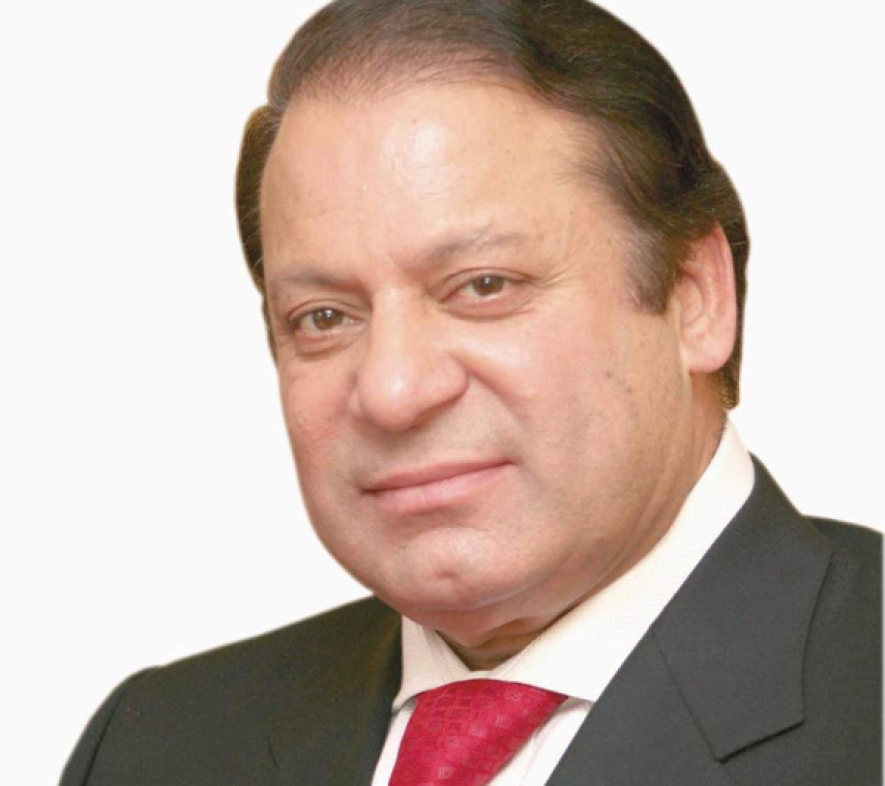A meeting of top government functionaries and army high command on Monday expressed the resolve to continue with the dialogue with the Tehreek-e-Taliban Pakistan (TTP) with a “concise agenda” under “well-defined parameters”. The meeting, however, cautioned at the same time that talks without an effective ceasefire and immediate end to violent activities would not achieve any tangible result. The meeting was attended by Chief of Army Staff (COAS) General Raheel Sharif, Interior Minister Chaudhry Nisar Ali Khan, Inter Services Intelligence (ISI) Director General Lt Gen Zaheerul Islam, Special Assistant to PM, Tariq Fatemi and senior officials of law enforcement agencies and the Prime Minister’s Secretariat.
Prime Minister Nawaz lauded the role and efforts of the ISI in protecting the country and ensuring its defence. The government, the prime minister said, was determined to carry on talks with the Taliban, but reiterated that any violent activity would be paid in the same coin and that the talks without a ceasefire would not be possible, an official at the Interior Ministry revealed to Daily Times. “Dialogue and violence cannot go hand in hand,” the prime minister is said to have said during the meeting.
The prime minister was quoted as telling the participants of the meeting that national security is of paramount importance for consolidating economic gains that the government had achieved through macroeconomic policies and diligence of the economic team. He said that he was still optimistic for the resolution of all issues through talks. Interior Minister Nisar Ali Khan apprised the meeting that during the last meeting between dialogue committee, it was emphasised that all-encompassing talks would be conducted with the Taliban Shura and it is high time that the dialogue process achieves tangible results, an official statement said.
The minister briefed the participants on the internal security situation as well as talks with the TTP. He elaborated on the progress made so far in the dialogue process. “It is high time to make talks with the TTP successful,” the sources quoted the interior minister as saying. He also briefed the meeting on the progress made so far in the investigation into the recent terrorist attacks in the country and shared detailed evidence in this regard.
There was consensus among the participants of the meeting that the dialogue process with the Taliban should have a concise agenda and dialogue should take place under well-defined parameters. Serious apprehensions were expressed over recent incidents of terrorism, and commitment to take effective action against the perpetrators of these attacks was reiterated. The ISI chief briefed the prime minister about the measures taken after the recent terrorist attacks and about the overall security situation of the country. The ISI DG assured that those people who are involved in the recent terrorist attacks would be brought to justice and their identity would be revealed to the people of Pakistan.
A government official familiar with details emerging from the high-level meet-up told this correspondent that the civil and military leadership voiced concern over the resurgence of terror attacks. “But this should not be seen as our weakness,” the official quoted the meeting participants as saying. The meeting also discussed other issues related to internal and external security, including the situation in Balochistan, and on the western border with Afghanistan.
The government had suspended air strikes against the Taliban in North Waziristan after they announced ceasefire in March 1 but the forces resumed the targeted strikes as terror attacks again started killing the people. Although the two sides have not officially ended the dialogue process, the rise in terror attacks once again has posed a serious threat to the future of the dialogue process. It remains to be seen whether the peace process still push through or if the government finally adopt a purely military solution to the problem of the Taliban.




















